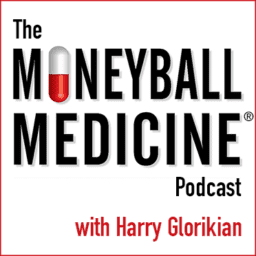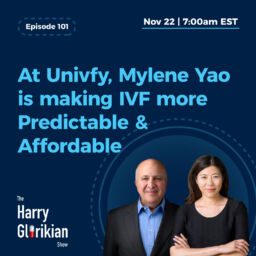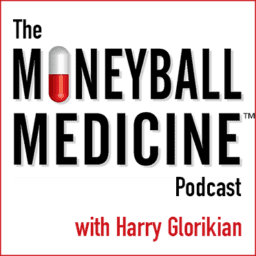Is Data The Currency Of The New Digital Age? Not really…..Information is Not Enough
When early humans learned how to build fire, their lives became much easier. They could huddle around the fire for warmth and use it to fend off animals. The light allowed them to work after dark and communicate over longer distances through warning fires and smoke signals. They didn’t have to understand the chemical properties of fire or the science behind how fire scared away bears or hyenas or the exact number of degrees having a fire warmed the air. Just having the ability to use fire—the practical skill to build a fire from the materials around them—was enough.
Fast forward several thousands of years to today. How many times have you heard something along the lines of ‘data is the currency of the digital age’ or ‘data is the new oil’? That idea has been accurate for much of our human history. Replace the word ‘data’ with ‘facts’ or ‘information’ and you can see how, up until the technological revolution of the past several decades, having the information or data gave you a position of relative power over those who did not have them. Early humans and their control of fire is a perfect case in point. Those with the skill to harness fire and who could use it to improve their environment were more successful than those who lacked that skill.
More recently, the same could be said for electricity: Who among us really understands what happens when you flip a switch and the overhead light turns on? Even master electricians who can wire complex industrial systems might not be able to explain what is happening to the electron fields in detail. Or antibiotics? We know that when we have an infection, a course of antibiotics kills the bacteria and we (usually) eventually get better. But few of us understand the biology and chemistry behind exactly how that happens. For the most part, a little bit of information and practical skills serve us well and we can go about our daily lives without needing to have the details behind how things work.
But the information age of the past century and the recent technological revolution has changed that for many industries. As our society became more competitive and technologically advanced, just having the data or skills was no longer enough to give someone the leg up. You needed something more to rise above others who were competing for the same resources and opportunities you were. It became less about simply having the information you’d acquired and more about what you could do with it—you needed cognitive and situational awareness to put the information into context. If you had the practical skills but couldn’t make the connections between that information and new problems or opportunities, you were missing out. It would be like using the only skill you have, say fire-building, and trying to fix every new problem with it. Not only would that not work, but you’d also miss the connection between fire and cooking food if you couldn’t see how it could be used for non-defensive uses.
Think about the computer revolution and its impact on careers and employment: In the beginning, having the information (learning a specific programming language, say BASIC or COBOL) was the ticket to a high-paying career with virtually rock-solid employment. But over time, more and more people gained the same skills and suddenly, there was a lot of competition for the good jobs and that virtually assured steady employment became a lot shakier. People who had the ability to quickly learn new computer languages and adapt their skills to new industries, like moving from banking to healthcare, became highly sought after.
But it’s not just the computer industry that finds itself adapting to this new paradigm. Look at car manufacturing, healthcare, education, banking, building, natural resources, and on and on and on. Every industry has been reshaped, to some degree, by the technological revolution over the past several decades. Some have adapted better than others and overall, it has brought attention to a new kind of desirable employee: Those with computational and soft skills that are easily transferrable, from project to project, or industry to industry. I’ve written about the fierce competition for this type of employee in healthcare, where startups and established players alike find themselves vying for workers against technology heavyweights and the need for companies to think outside the box to assemble multi-disciplinary teams. Successful employees and the companies they work for have the information and understand how to leverage it to new problems. They go beyond simply having information—they have the knowledge to make the connections, to go beyond the status quo, and to create new models. They can out-compete, win, and transform.
This is why, although I agree with the statement that data is the new ‘it’ factor, I disagree that information alone is the key to success. One only needs to look at the price of a barrel of oil to see how that analogy plays out in the long run. From the dizzying heights, it once held decades ago (oil crisis of the 1970s, anyone?), to negative values in the past few months. And it’s unlikely we will ever see it rise to those heights again consistently: society and technology have moved on, and the cachet of oil can’t stand up to renewable energies and fuel-efficient vehicles that consumers want. The value that oil once held isn’t there anymore—and the same thing will happen with data. As the value of explicit data declines, the importance of implicit knowledge—how to use/analyze/make connections with the data will rise.
The growing role of Artificial Intelligence drives home this point. Up to now, the goal was to collect as much data as possible and funnel it into AI & machine learning (ML) systems. Poof! Out pops the answer and we have little to no idea how the system arrived there. The black box of AI does the work to find the connections in the multidimensional data we fed in. But the real work is far more nuanced.
In the beginning, the value of good information is quite high—after all, garbage in, garbage out. That’s the stage we’ve been at for the past few decades. But as the AI/ML systems become more sophisticated, it won’t matter how ‘clean’ or good the data going in will be—the system will be able to make sense of it—keeping the data it ‘knows’ is good and discarding the garbage or ignoring the noise. All the system needs is more and more data—and after a while, with simulations and contrived datasets, the value of each piece of discrete information will drop. How to make sense of it, find the patterns amid the noise, identify the solution—that’s where the real power will be. Finding the truth, the answer, is exactly what corporations and their employees need to do, whether or not they use an AI system. AI makes it easier, but you still need people who can determine when the AI answer is wrong or what to do with the mess of data analysis.
Knowledge
Knowledge, the sort of wisdom that comes from understanding the information you have and how to make sense of the interpretation and apply it to new problems, is where the real power in business today and in the future lies. If you just have the data by itself, you can’t make that next leap—you won’t see what’s coming down the pipeline. You can’t envision how your service/widget/product can be repositioned for an entirely new purpose or imagine how your business can pivot to exclusively remote work or how to reconfigure your manufacturing or distribution pipelines to accommodate new safety rules. The current pandemic caused by COVID-19 has brought these inadequacies to light and drawn sharp comparisons between companies (and industries and individuals) that are succeeding during this time of crisis.
Take the numerous factories that after a short period of retooling, brought back their workforce safely to make personal protective equipment (PPE) for essential workers during the pandemic instead of furnace filters or car parts. Or companies with previously strong in-office cultures that have started to rethink that model because productivity has been high despite the chaos caused by COVID-19. If you have company leadership that is able to envision how to adapt quickly to the changing business environment, the company may bear the financial and personnel repercussions better than its competitors. In the long run, that knowledge is essential.
There are pieces of the economy that can’t just change their business models at the drop of a hat—I recognize that. Entertainment and the service sectors are cases in point. (Though restaurants that transitioned to carry-out meals may find themselves some of the few establishments to survive a months-long shutdown.) Instead, I’m talking about the industries and companies that have shown themselves to be woefully un- and under-prepared when they shouldn’t have been. Healthcare, education, technology, insurance, real estate…the list goes on and on. It’s not just about having more data or the ‘right’ data to help us prepare for catastrophes and pandemics. We are drowning in the amount of data that exists across every industry, yet few have the flotation devices that knowledge gives us to survive the storm.
This is my call to action: let’s go beyond data and information-gathering and learn how to take it one (or several) steps further. We should leverage predictive modeling and AI where we can, but we need people with the creativity, foresight, and confidence to take risks that having a deep understanding of the data gives us. In manufacturing, that might mean taking all of the data about supply chains, employee locations and skills, and consumer demands and extrapolating to what happens when one of those things (or all three) are disrupted. What new products or services could the company provide? In healthcare, it’s the vision to imagine new applications of genome sequencing and AI to help us unlock the puzzles of chronic, complex diseases. Knowledge is power, and to succeed today and in the future, we all must be thirsty for it.




